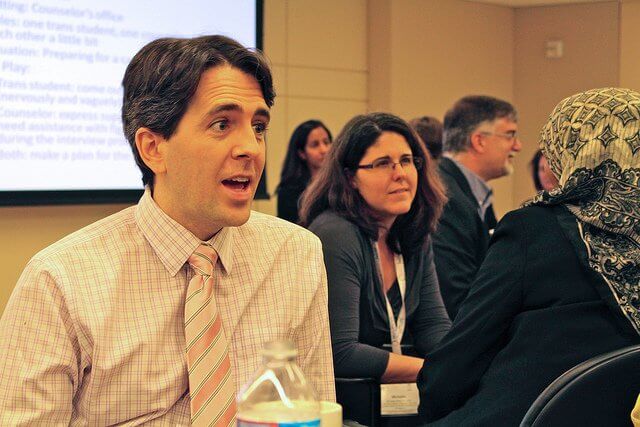
Member Profile: David Steib
08 May 2015 Blog | Tags: member profiles
From time to time, we’ll be sharing interviews with our members, so we can learn more about their legal careers and the role that Washington Council of Lawyers has played in their professional development. Today we spoke with our Membership Co-Chair, David Steib. 1. Tell us a bit about yourself. I am the Language Access Director at Ayuda, a nonprofit in DC that helps immigrants overcome obstacles in order to succeed and thrive in the United States. In my role, I work to eradicate discrimination based on national origin or disability by advocating for the use of interpreters and translators to ensure that language barriers never impede a person from receiving the services to which he or she is entitled. I have been a lawyer since 2008, when I graduated from law school. In that time, I have spent four years as a litigator in the housing unit at the Legal Aid Society of DC and two years heading the Office of Public Interest at American University Washington College of Law. 2. What are you working on right now? One exciting initiative that I am working on right now is getting legislation passed to add a private right of action to the DC Language Access Act of 2004, so that people whose rights have been violated will be able to sue to enforce their rights. 3. How long have you been a Washington Council of Lawyer member, why did you join, and what are some things you’ve done as a member? I have been a member since 2008. I joined because I was a new public interest attorney (I graduated from law school in 2008) and one of my colleagues at Legal Aid (Jodi Feldman) encouraged me to become a mentee in the mentoring program. I was accepted into the program, and Dena Bauman, the public interest advisor at UDC Law, was my mentor. Now I work with her as a fellow board member and on our membership committee. I have loved being a member of Washington Council of Lawyers. As a member, I have been both a mentee and mentor in the mentoring program and have attended many related events. I have also been to many of the organization’s happy hours and awards functions. I have volunteered with Gifts for the Homeless. I have also participated in the litigation skills training. And I have served on the Board for the last two years. 4. What have you found most valuable about your membership in Washington Council of Lawyers? Membership has exposed me to great lawyers doing great work. That exposure has resulted in new friendships, new professional ties, and continued inspiration. In law school, my friends and I created a new student group: Students for Public Interest Community Enhancement (SPICE). The group was meant to ensure that public interest law students (as well as law students committed to pro bono) had the moral support, access to information, and camaraderie they needed in order to devote themselves to the hard row that they were hoeing. Washington Council of Lawyers is like SPICE for practicing attorneys. 5. How has legal practice/DC legal scene changed since you’ve started practicing? Since I started practicing, there has been a great increase in the number of postgraduate fellowships sponsored by law schools. These fellowships are meant to help graduating students who do not yet have employment by giving them the opportunity to practice and get experience while conducting a job search and while waiting for their bar results. On the one hand, they are a great way to get your foot in the door as a new attorney. On the other hand, they don’t always give you enough money to pay the bills. Big law firms in DC are also hiring fewer people than they were when I graduated from law school. In general, the job market seems tougher. 6. Any advice for law students/new lawyers? Don’t hesitate to ask folks for informational interviews. You can learn a lot by talking to people about their career paths and about the resources that they rely on to keep abreast of the field and of new opportunities. Thanks to David for answering our questions. And if you’d like to join David and the other wonderful members of Washington Council of Lawyers, you can do so here.

Community Policing East of the River
06 May 2015 Blog, East River of the River Profiles | Tags: policing
With the killings of Michael Brown, Eric Garner, and Freddie Gray, police-community relations have come under increasing scrutiny, particularly in disadvantaged neighborhoods such as those East of the River where trust has disintegrated between officers and residents. The Post recently profiled Lieutenant Teresa Brown, a District native and long-time D.C. police officer who’s working to bring back community policing in Ward Seven. Brown is focusing on reaching out to community members to get to know her neighborhood and rebuild some of that trust. “We gotta build that trust on the front end. Treat everyone like humans, like they could be your mamma or your brother.” Our recent three-part Racial Justice Series addressed many of these same issues, focusing on how the deaths of African Americans at the hands of police has highlighted a growing need for lawyers to help eradicate discrimination and violence against people of color and build an inclusive society that enables everyone to succeed.
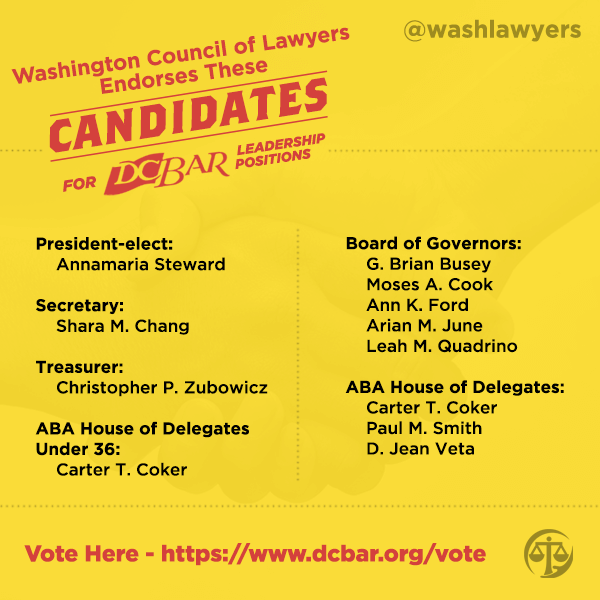
Our 2015 D.C. Bar Officer Endorsements
05 May 2015 Blog | Tags: Candidates, DC Bar
Update: The results are in. Congratulations to this year’s winners! ——– The leadership of the D.C. Bar focuses the priorities and sets the tone for one of the largest bar associations in the country. can have a huge impact on its focus and priorities. Since Washington Council of Lawyers is devoted to promoting pro bono and public interest law, we think it’s essential that D.C. Bar leaders understand firsthand the importance of increasing access to justice in our community. With this in mind, we are pleased to endorse the following candidates for D.C. Bar office. If you are an active member of the D.C. Bar in good standing, you can vote online until May 22. President-Elect Annamaria Steward Secretary Shara M. Chang Treasurer Christopher P. Zubowicz Board of Governors G. Brian Busey Moses A. Cook Ann K. Ford Arian M. June Leah M. Quadrino ABA House of Delegates Paul M. Smith D. Jean Veta ABA House of Delegates – Under 36 Carter T. Coker We base our endorsements on the candidates’ resumes and answers to a questionnaire, prepared by our D.C. Bar Affairs Committee. For the office of President, we also hold a question-and-answer session with the candidates. Lists of multiple candidates appear alphabetically, and not in order of preference. If you have questions or would like to review the survey responses, please email one of our DC Bar Affairs Co-Chairs, Susan Hoffman and Barbara Kagan. Oh, and don’t forget to vote!
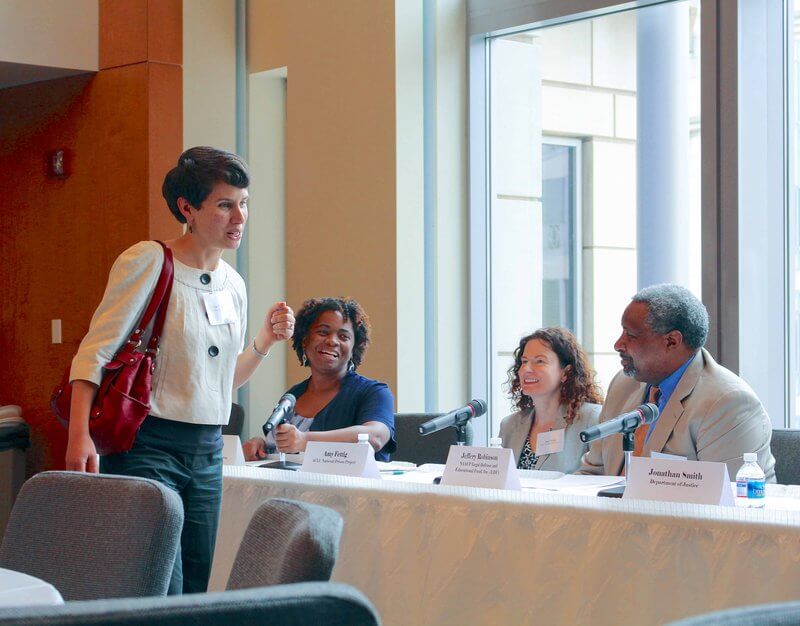
Member Profile: Taryn Wilgus Null
01 May 2015 Blog | Tags: member profiles
From time to time, we’ll be sharing interviews with our members, so we can learn more about their legal careers and the role that Washington Council of Lawyers has played in their professional development. For our inaugural installment, we spoke with longtime member Taryn Wilgus Null. Tell us a bit about yourself. Currently, I’m an associate at Mehri & Skalet, a small, public spirited law firm that represents plaintiffs in employment, fair housing, and consumer protection cases. In June, I’ll be joining the U.S. Department of Justice, Civil Rights Division, Employment Litigation Section as a Trial Attorney. I have been out of law school for nearly eight years and have previously clerked for a judge on the D.C. Court of Appeals and completed fellowships at the National Women’s Law Center, where I worked on education and employment issues, and Americans United for Separation of Church and State, where I litigated First Amendment religion issues. What are you working on right now? I am drafting a complaint in a Title VII class action involving race discrimination, working on an opposition to a motion for summary judgment in an individual Title VII case, and working on a post-hearing brief in a Fair Labor Standards Act arbitration involving unpaid pre- and post-shift work at a federal prison. How long have you been a Washington Council of Lawyers member, why did you join, and what are some things you’ve done as a member? I joined Washington Council of Lawyers in 2007 when I was working at my first job out of law school. One of my colleagues at the National Women’s Law Center sent me an email about the mentoring program and told me that WCL was a great organization. I joined the the mentoring program as a mentee. The year after I was a mentee in the mentoring program, I joined the Board and co-chaired the mentoring program. I have since served as the Board President and Secretary and have served as a mentor in the mentoring program. What have you found most valuable about your membership in Washington Council of Lawyers? The connections that the organization provides have been invaluable. The community of lawyers has profoundly affected the enthusiasm that I have for practicing public interest law in DC. How has legal practice/DC legal scene changed since you’ve started practicing? The legal job market has unfortunately become much, much more difficult since I started practicing. The silver lining for nonprofits is that in recent years they have had assistance from volunteer attorneys, as well as lawyers with fellowships funded by big law firms or law schools. Any advice for law students/new lawyers? In your first few years of practice, look for as many opportunities as you can to engage in work and activities that will expose you to new practice areas and new people. There are many dramatically different jobs that a lawyer can have, and it can take some time to find the right fit for you. Thanks to Taryn for answering our questions. And if you’d like to join Taryn and the other wonderful members of Washington Council of Lawyers, you can do so here.

Ward 8 Votes Tomorrow to Fill Council Seat
27 April 2015 Blog, East River of the River Profiles | Tags: dc council, ward 8 election
Tomorrow, April 28, is the special election to fill the Ward 8 Council seat vacated by the death of Marion Barry. WUSA has a handy guide to polling hours (7am to 6pm), locations, and candidates. Meanwhile, the Post’s early coverage focuses on the possibility that Barry’s legacy will be carried on by his son, Marion Christopher Barry, who is one of the 13 candidates standing for election.
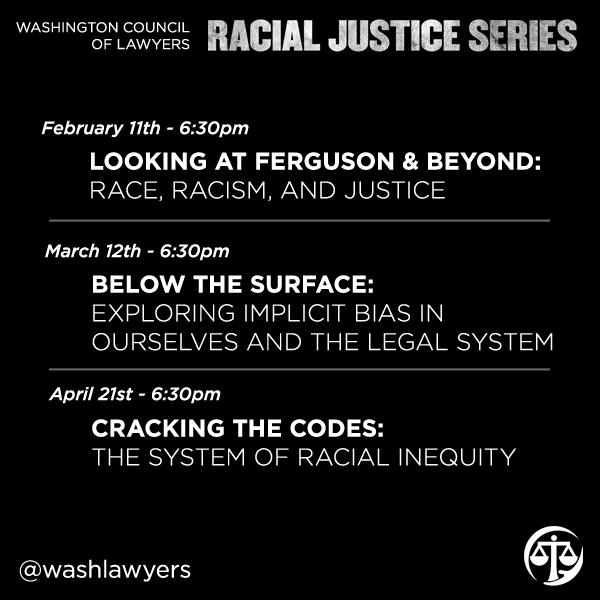
The 2015 Racial Justice Series
22 April 2015 Blog | Tags: racial justice series
From the beginning of the civil rights movement to recent events in Ferguson and elsewhere, advocates have fought discrimination, social exclusion, and violence affecting people of color. In our three-part Racial Justice Series, we’ll explore these problems and ways to solve them. Each part of the series featured both a presentation and an active discussion. Part 1 – Looking at Ferguson and Beyond: Race, Racism and Justice Wednesday, February 11 6:30 – 8:30 pm Hogan Lovells (555 13th Street NW) This discussion of racism and the legal system featured panelists with significant experience and expertise in the areas of civil rights, racial justice, and structural inequality. The Honorable Anna Blackburne-Rigsby, D.C. Court of Appeals Professor Anthony Cook, Georgetown Law Nicole Austin-Hillery, Brennan Center for Justice The event was moderated by Camille D. Holmes, Director of Leadership and Racial Equity at the National Legal Aid and Defender Association. If you missed the event, check out this Storify, featuring tweets, photos, and links from the event. We’ve also collected links to articles about the DOJ Ferguson report, which came out shortly after this event. Part 2 – Below the Surface: Exploring Implicit Bias in Ourselves and The Legal System Thursday, March 12 6:30 – 8:30 pm Hogan Lovells (555 13th Street NW) In this workshop we discussed implicit bias – how it impacts our practice and the administration of justice – and what we can do to correct them. The event was facilitated by Camille D. Holmes, Director of Leadership and Racial Equity at the National Legal Aid and Defender Association, and Sara Jackson, Pro Bono Coordinator at Georgetown Law. If you missed the event, check out this Storify, featuring tweets, photos, and links from the event. We’ve also collected a variety of additional resources on implicit bias. Part 3 – Cracking the Codes: The System of Racial Inequity (Film & Discussion) Tuesday, April 21 6:30 – 8:30 pm Hogan Lovells (555 13th Street NW) This event began with a screening of Cracking the Codes: The System of Racial Inequity, a film directed by Shakti Butler. We then used parts of the movie to facilitate discussions about racism, identity, and inequity. The discussion was facilitated by Camille Holmes, Director of Leadership and Racial Equity at the National Legal Aid & Defender Association.

Economic Inequality Concentrated East of the River
17 April 2015 Blog, East River of the River Profiles | Tags: economic inequality, urban institute
A new report from the Urban Institute shows an increasing concentration of “economically challenged” communities East of the Anacostia River. Washington City Paper notes that while many areas in Northwest have grown more affluent in the past twenty years, “the challenged areas became increasingly consolidated east of the river, with new patches in Congress Heights, Washington Highlands, and along Pennsylvania Avenue SE and Southern Avenue SE in Ward 7.” The Urban Institute proposes a variety of steps the city and the new Mayor can take to ease economic inequality, focusing on “inclusive housing, DC schools, open data, economic development, social and economic mobility, and public safety.” Providing pro bono legal services to East of the River residents is another important element in ensuring that all DC citizens have equal access to justice, regardless of income.

Candidates for Upcoming Ward 8 Council Election
17 April 2015 Blog, East River of the River Profiles | Tags: dc council, ward 8 election
The Washington Post has a handy round-up of the eleven candidates standing for the Special Election for the Ward 8 City Council seat vacated by Marion Barry upon his death. The election is coming up April 28; the Post article has information about each candidate’s positions concerning issues important to East of the River residents.
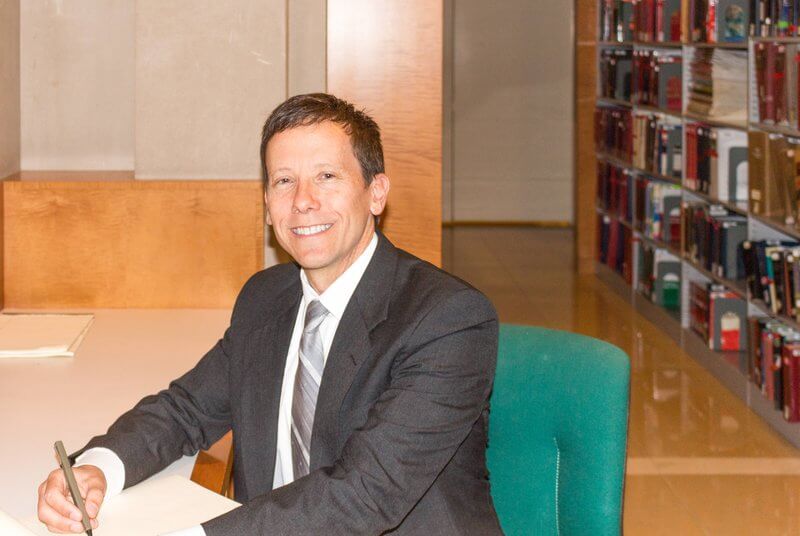
A Government Lawyer Keeps Up the Volunteer Habit
16 April 2015 Blog, East River of the River Profiles | Tags: advice & referral clinic
By Peter Nye Longtime volunteer Andrew Doyle finds the D.C. Bar Pro Bono Program Advice & Referral Clinic to be a rewarding way to serve people who lack other access to legal services, as well as a great way to learn about different areas of law. The Clinic brings dozens of attorney volunteers East of the River to the offices of Bread for the City on Good Hope Road SE, where they provide brief legal advice and referrals one Saturday morning each month. Andrew, an attorney at DOJ, first decided to participate in the Advice & Referral Clinic when the pro bono coordinator of DOJ’s Environment and Natural Resources Division sought volunteers on a certain Saturday in 2010. Because he had recently heard a Washington Council of Lawyers presentation about the clinic, he volunteered that very Saturday. He was hooked, and ever since, he has volunteered almost every month the Clinic has had an open spot. Andrew finds Clinic work rewarding because—unlike his day job—volunteering allows him to provide prompt service to clients who are individuals. For one client with an insurance problem, Andrew immediately called the insurance company and resolved the dispute on the spot. For clients with custody issues, he has drafted letters to opposing lawyers about compliance with judges’ decrees. Most clients are immensely grateful for his help solving their problems. Of course, some clients cannot achieve the goals they most want to reach. For example, one client wanted to expunge his criminal record and then apply for a job. Andrew could not help him with that particular request, because the Clinic is limited to assisting with civil legal matters. Undeterred, Andrew helped the client develop a strategy for persuading employers that he was worth hiring despite his criminal record. Andrew says that most of his Clinic clients—including this one—who cannot achieve their initial goals are nonetheless thankful to have a lawyer research and analyze their problems. The clients can move forward, even if not in the direction they had initially hoped. Andrew encourages all DC-area lawyers to volunteer at the D.C. Bar Pro Bono Program Advice & Referral Clinic. He acknowledges that the work can be intimidating at first, but reassures volunteers that they will quickly adjust. He also points out that in addition to the satisfaction of helping his clients, he always learns about new areas of law by volunteering at the Clinic, especially because most of the legal issues that arise during Clinic hours are ones that he does not handle at the DOJ. Learning about new areas of law and helping people at the same time make the Clinic an ideal pro bono experience. To learn more about volunteering with Washington Council of Lawyers at the D.C. Bar Pro Bono Program Advice & Referral Clinic, please contact Renee Kostick Reynolds.






